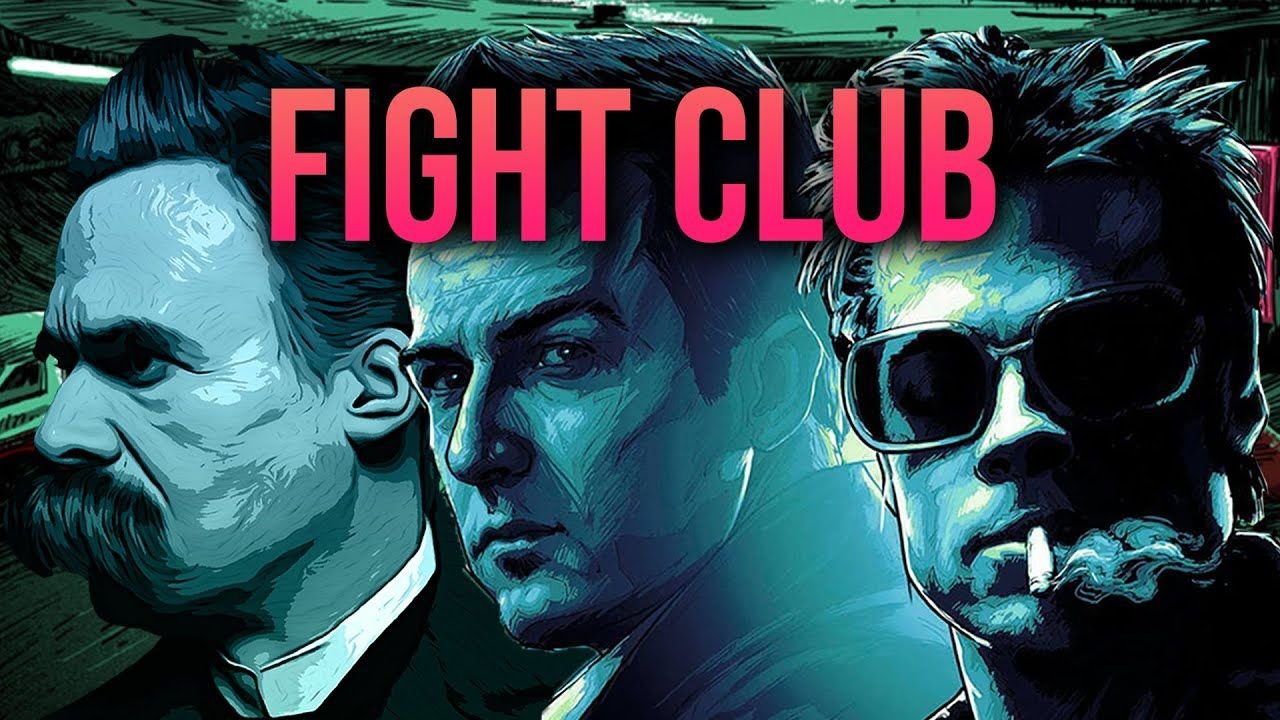Introduction
Fight Club, both Chuck Palahniuk’s novel and David Fincher’s film adaptation, is a cult classic that has sparked numerous debates and interpretations since its release. At its core, Fight Club is a multifaceted critique of contemporary society, exploring themes such as consumerism, identity, masculinity, and the quest for meaning. This essay delves into the key messages of Fight Club, examining how it resonates with modern audiences and what it ultimately seeks to convey.
The Illusion of Consumerism
One of the most prominent themes in Fight Club is the critique of consumerism. The protagonist, known as the Narrator, is initially depicted as a quintessential consumer, obsessed with acquiring material possessions to fill the void in his life. The film begins with him cataloging his IKEA furniture, highlighting the emptiness of his consumer-driven existence.
- Materialism as a Distraction: The Narrator’s life is dominated by his job and the things he owns, but these do not bring him genuine happiness or fulfillment. Fight Club suggests that consumerism is a superficial distraction that prevents people from confronting deeper existential issues. The accumulation of material goods becomes a substitute for true emotional and spiritual growth.
- Breaking Free: Tyler Durden, the Narrator’s alter ego, embodies the rejection of consumerism. He famously says, “The things you own end up owning you,” advocating for a minimalist lifestyle where personal freedom is achieved by relinquishing material attachments. This message encourages viewers to question the societal pressure to conform to consumerist ideals and to seek fulfillment beyond possessions.
Identity and the Self
Fight Club also delves into the concept of identity, exploring how individuals construct their sense of self in a world filled with external influences and societal expectations.
- The False Self: The Narrator’s journey is one of self-discovery, starting from a state of profound dissatisfaction with his life. His identity is initially defined by his job, his possessions, and his attempts to fit into societal norms. Tyler Durden’s emergence represents a break from this constructed identity, pushing the Narrator to confront his true self.
- Duality and Self-Realization: The duality of the Narrator and Tyler Durden symbolizes the internal conflict many people face between their true desires and the roles they are expected to play. The revelation that Tyler is a figment of the Narrator’s imagination underscores the idea that self-realization requires confronting and integrating all aspects of one’s personality, even the darker, suppressed ones.
Masculinity in Crisis
Fight Club is also a commentary on modern masculinity, exploring the idea that contemporary society has emasculated men by stripping away traditional sources of male identity and purpose.
- The Search for Authentic Masculinity: The members of the fight club, including the Narrator, are depicted as men who feel disconnected from their primal nature. The fight club becomes a space where they can reclaim their masculinity through physical combat and the expression of raw emotions. This quest for authentic masculinity is a reaction against a society that prioritizes comfort and safety over challenge and adversity.
- Rejecting Traditional Roles: Tyler Durden’s philosophy encourages men to reject the conventional roles and expectations imposed on them. By doing so, they can redefine their identities and find new ways to express their masculinity. The violent rituals of the fight club, while extreme, symbolize a desire to break free from societal constraints and reconnect with a more primal sense of self.
The Quest for Meaning
Underlying the themes of consumerism, identity, and masculinity is Fight Club‘s exploration of the human quest for meaning in a seemingly indifferent and chaotic world.
- Nihilism and Liberation: Tyler Durden’s worldview is heavily influenced by nihilism, the belief that life is inherently meaningless. However, Tyler sees this realization not as a source of despair but as an opportunity for liberation. By accepting the absence of inherent meaning, individuals are free to create their own purpose and values. This message resonates with those who feel trapped by societal norms and yearn for a more authentic existence.
- The Role of Chaos: Tyler advocates for embracing chaos and destruction as means to achieve renewal and transformation. The fight club and later Project Mayhem are embodiments of this philosophy, challenging the status quo and forcing individuals to confront the emptiness of their lives. Through chaos, Tyler believes that people can rediscover what truly matters to them.
The Critique of Modern Society
Fight Club offers a scathing critique of modern society, highlighting the ways in which it stifles individuality and promotes superficial values.
- Corporate Control: The film portrays a world where corporate interests dominate, reducing individuals to mere cogs in the machine. The Narrator’s job, which involves calculating the cost of automobile recalls, exemplifies the dehumanizing effects of corporate culture. Tyler’s anarchic actions, including the destruction of corporate art and credit card companies, are acts of rebellion against this system.
- The Search for Authenticity: Ultimately, Fight Club is about the search for authenticity in a world that constantly promotes inauthentic values. Whether it’s through rejecting consumerism, reclaiming masculinity, or creating personal meaning, the characters in Fight Club strive to find a more genuine way of living. This quest for authenticity is a powerful message that resonates with many who feel alienated by modern society’s emphasis on superficial success.
Conclusion
Fight Club is a complex and provocative work that challenges viewers to rethink their assumptions about consumerism, identity, masculinity, and meaning. Its critique of modern society and its exploration of the human condition remain relevant, encouraging individuals to seek authenticity and liberation in their lives. By confronting uncomfortable truths and embracing the chaos within, Fight Club offers a path toward a more fulfilling and meaningful existence.

